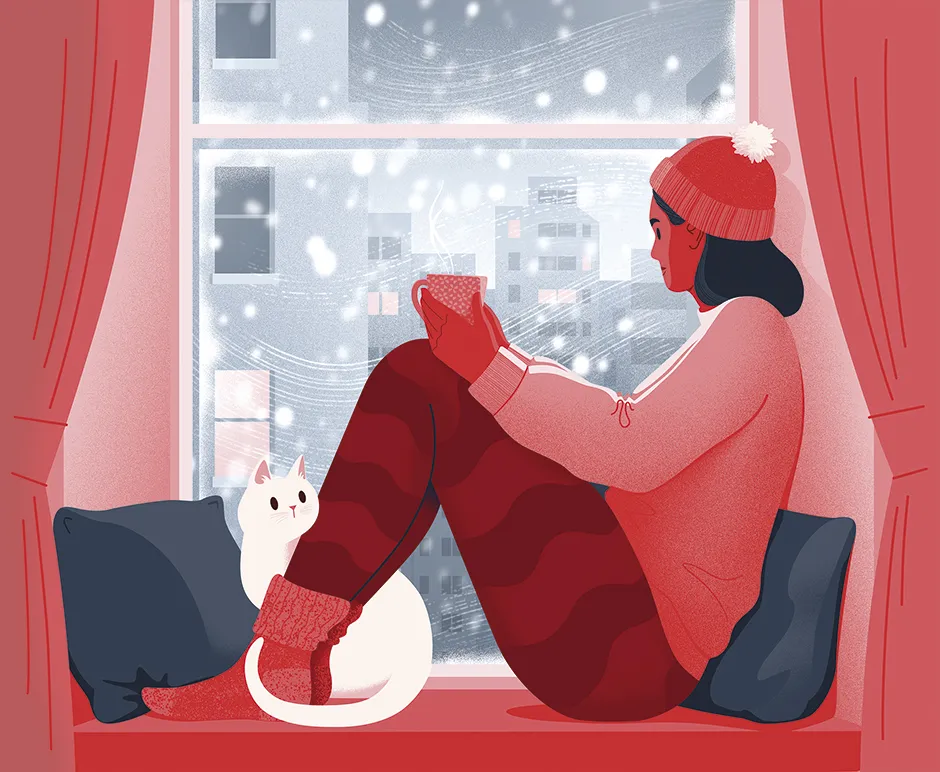Staying warm is a balance…
… between heat produced and heat lost. When we get cold, we often shiver because shivering generates heat. At the same time, blood flow is diverted away from the extremities, like the fingers and toes, to the torso. This helps protect vital organs, like the heart and lungs, and reduce heat loss to the surroundings.
Some people feel the cold more than others…
… even in the same environment. This is to do with size, fat and metabolism. Smaller people with less body fat lose more heat to their surroundings than bigger people with more fat. Bigger people may have more muscle mass, and are therefore able to produce more heat.
Need to know...
- Wear lots of layers – they’ll trap heat to help you stay snug.
- You don’t lose heat disproportionately through your head, but you should still wear a hat.
- Your mum was right! Take your coat off when you get inside.
Layering is critical
It acts as insulation because it traps warm air close to the body. Layers are easy to put on and peel off, helping you react quickly to changes in temperature.
Take your coat off indoors
If you wear a coat indoors and get really warm, blood gets diverted to the skin to help cool you down. If you then go outside, the cold air will sap this heat from your skin and leave you feeling colder than you would do otherwise.

Expensive jackets aren’t necessarily better
The price is often more to do with the weight and warranty than warmth. When Edmund Hillary climbed Everest, he wore wool, which is warm but heavy. Expensive jackets are often lighter, but the trick is to look for one that traps heat next to the body well. I don’t care if a jacket is synthetic or down, as long as it does this.
The head doesn’t lose heat more rapidly than the rest of the body
If you wore a hat and nothing else, you’d still lose heat from everywhere else! That said, it’s the one area we often leave uncovered in the cold, so wearing a hat is still a good idea.
Get active… but not too active
Physical activity gets your muscles working and generates heat, but it can be a double-edged sword. Too much exercise makes you sweat, which cools you down as it evaporates. So, you could end up feeling colder than before you started exercising.
Read more from A Scientist's Guide to Life:
- How to make the perfect cup of tea
- How to sit correctly
- How to garden for wildlife
- How to get a good night's sleep
- 9 skincare tips from a dermatologist
Have a snack
When food is broken down, it generates energy and heat. If I’m camping, I’ll often have a snack before I go to bed – something that’s high in fat and protein, like a chocolate bar with nuts, will require the body to work harder to digest it.
You can become acclimatised to the cold
Fishermen who work in really cold places sometimes develop a reflex called the ‘hunting reaction’ where blood is repeatedly shunted to and from their hands. It means they can retain dexterity in their fingers, and fillet their fish without getting frostbite. We also see adaptation when we give athletes ice baths. At the beginning, they find it hard to tolerate, but it becomes easier with time.
